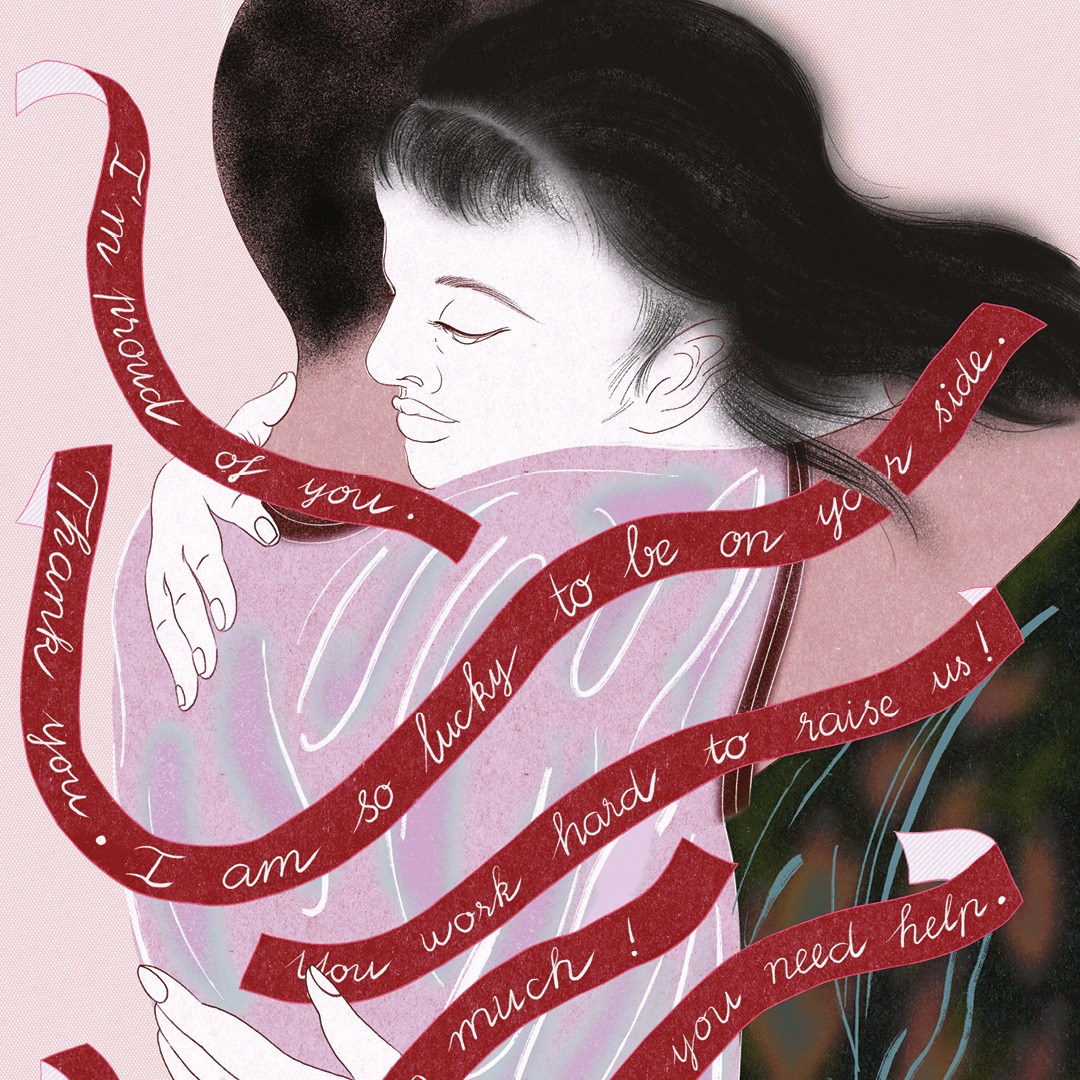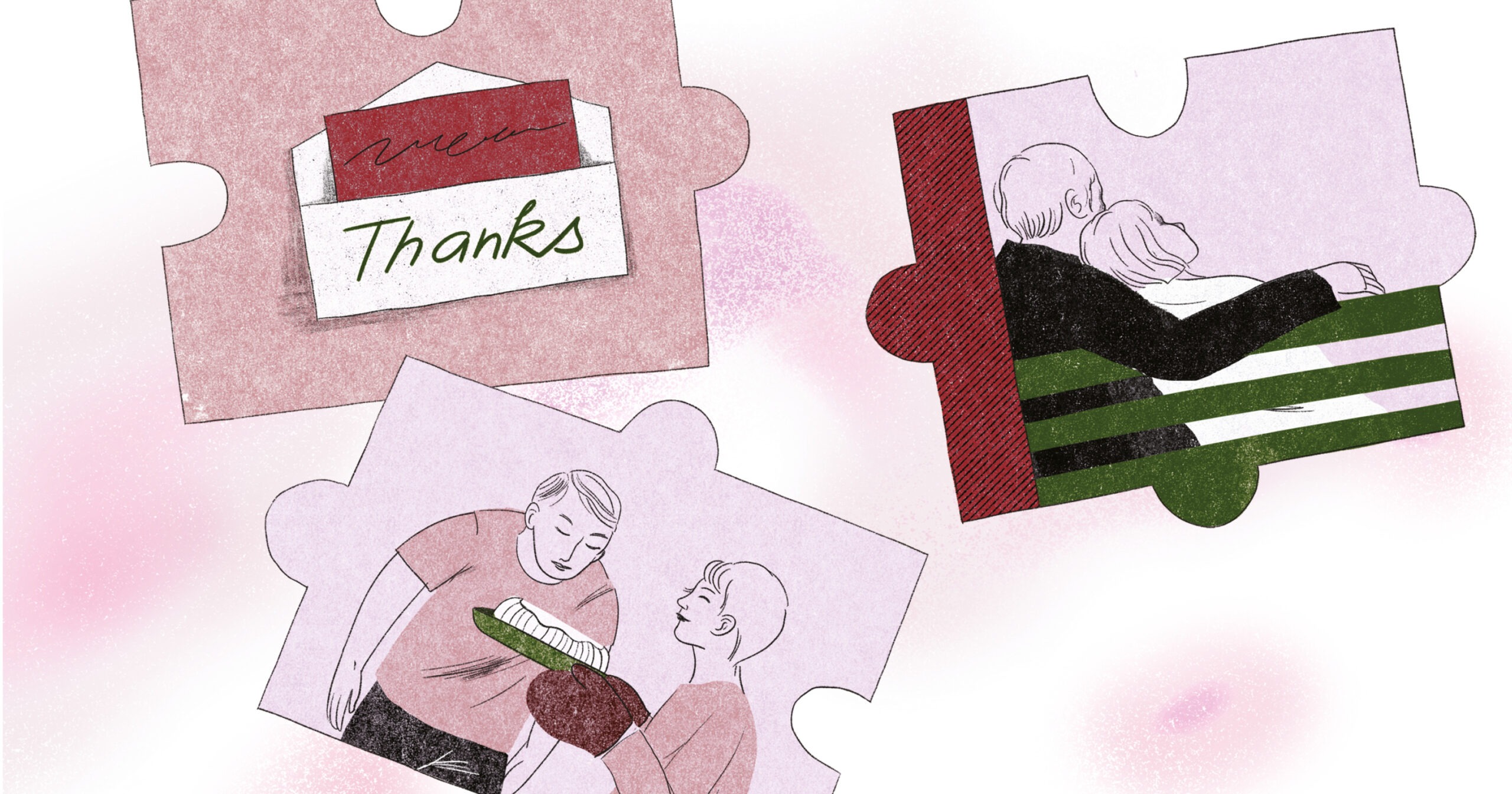How do you show appreciation and affection for someone you care about? Perhaps you’re a person who responds to physical touch and you love to greet friends with a warm hug or give colleagues a pat on the back. Or maybe you prefer to put a lot of thought into selecting the perfect birthday gifts or surprising a family member with a bunch of flowers. The concept of love languages has been around for more than three decades and is based on the simple idea that different people with different personalities like to give and receive love in different ways.
It was created as a means to understand romantic love, but some therapists and coaches now use the five love languages to help people improve their friendships and other interpersonal relationships. Understanding how you, as well as the people in your life, prefer to give and receive appreciation and care could be a stepping stone to more harmonious interactions and fewer misunderstandings.
Where did they come from?
The five love languages were originally developed by American author, speaker and counsellor Gary Chapman in 1992, and his book, The Five Love Languages, has sold more than 20 million copies and topped the New York Times bestseller list. He suggests that within romantic relationships, couples tend to express and receive love in five main ways: words of affirmation, acts of service, gifts, quality time and physical touch. Chapman, also a marriage guidance counsellor, used his love languages to help the couples he worked with, but over the past three decades, they’ve been adopted into common parlance, employed by therapists and endorsed by people in the self-development and wellbeing sphere, such as Oprah Winfrey.
How to use them
There are numerous love-language quizzes online, including on Chapman’s own website, but you can gain an understanding of your own love language by thinking about the ways you respond to love and the actions you take to show that you care for someone. Many people use a mixture of all five love languages, but tend to rely more on one or two of them.
Joanne Callan, from Newry, Northern Ireland, is a holistic therapist and uses the idea of love languages in her coaching. She says they can be useful in all caring relationships – such as within families and friendships – not just between romantic partners. ‘Sometimes, I think of them as appreciation languages, rather than love, because they’re about what makes people feel seen and valued, and that could be friends or colleagues, as well as romantic partners,’ she says. ‘They can help you understand what’s important to you – and how everyone has different ways of expressing care.’ She gives the example of a group of friends, where everyone might have a different preference: ‘One person might appreciate a carefully chosen gift on their birthday, while another might prefer to go out for a nice lunch or countryside walk.’
The case against them
Love languages as a therapeutic concept has its critics, as well as its fans. In spring 2024, relationship scientists at the University of Toronto Mississauga in Canada and the University of York in the UK published a study concluding that there’s no straightforward fix for improving relationships, nor a simple formula where each person fits neatly into one of five categories. The researchers were sceptical about the concept that each person has a preferred love language, instead saying: ‘Love is not akin to a language one needs to learn to speak, but can be more appropriately understood as a balanced diet in which people need a full range of essential nutrients to cultivate everlasting love.’
Joanne agrees that love – in all its forms – is personal and individual, saying: ‘Love languages can be part of the jigsaw puzzle and a helpful tool to understanding others, but humans aren’t black and white.’ She also points out that people who are neurodivergent can relate to others in different ways. For example, some people who have autism might find physical touch uncomfortable, but value quality time talking about one of their special interests.
Moving forwards
Whether you identify with one of the five love languages or feel the issue is more nuanced and individual, improving your overall understanding of how your loved ones give and receive appreciation – and how you like to be cared for yourself – can have the power to strengthen relationships. ‘It’s about creating that space where you can understand that how you like to give and receive care might be different from someone else, and that’s okay,’ says Joanne.
Understanding different people’s preferences can also help to explain those times when you make what you believe to be a nice gesture but it seems to go unappreciated. ‘Love languages can offer a bit of insight and act as a reminder that everyone is different,’ adds Joanne. ‘Imagine how much easier life would be if everyone had a label saying “How to care for me”. But people don’t come with instruction manuals.’
The five love languages
Words of affirmation
Complimenting a friend on a new outfit, expressing admiration for a colleague’s values or praising a sibling when they get a promotion at work are all affirmations of care and attention. An article on Oprahdaily.com points out that people who favour this love language can be particularly upset by insults or careless phrasing. ‘Those who value words of affirmation tend to respond well to praise and encouragement,’ says Joanne. ‘They may do things like writing particularly heartfelt messages or cards. Words matter to them.’
Acts of service
Running errands for a family member, helping a colleague with their workload or offering to babysit for a friend are all acts of service. Being helpful really counts for people who view ambivalence or a lack of support as uncaring. Joanne explains: ‘It’s often about noticing what somebody is doing for everyone else and stepping in to lighten their load. If you (or a friend) are the person always running around doing things for others, chances are you’re an acts-of-service person.’
Gifts
Buying a friend the new novel by a favourite author, remembering people’s birthdays or giving thoughtful homemade presents are all ways of communicating effort and showing that you have noticed a person’s preferences. People who favour this love language can feel particularly stung if a birthday or anniversary is forgotten. ‘It doesn’t have to mean a person is materialistic,’ says Joanne. ‘I often think of the time and effort a friend has spent choosing just the right gift. It’s a physical and tangible representation of their care.’
Quality time
It might be a walk or lunch with a family member, a commitment to an evening class with a friend or a regular date night within a long-term relationship. The Oprahdaily.com article points out that being with someone who’s distracted or distant can make you feel unseen or unheard. Says Joanne: ‘In a world where people are busy and being pulled in different directions, prioritising quality connection and time to be truly present with someone can be a way to show how much you value them.’
Physical touch
Holding a friend’s hand as they confide in you, greeting people with a warm hug or sharing an affectionate moment with a partner can mean the world to people who thrive on physical connectedness. People who value physical touch might have grown up in a particularly tactile family. Says Joanne: ‘Something as simple as a pat on the back or a squeeze of the hand just lands differently for you if you value physical touch.’ It’s important to note, however, that this love language can be problematic – ask before going in for a hug and take a step back if someone looks uncomfortable with your proximity or even the slightest touch (see To hug or not to hug?).
To find out more about Joanne’s work, visit trythealternative.net


